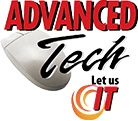Data loss, whether caused by equipment failure, human error, natural disasters, disgruntled employees, or cyberattacks, is a major threat to your business. If you’re not prepared, losing sensitive data can bring your business to a grinding halt. Fortunately, the following backup solutions can help prevent such a scenario.
NAS
Network attached storage allows you to have a central repository for all your backups in your company. NAS can range anywhere from a couple terabytes to hundreds of terabytes. These allow the backups to be isolated from the actual machines that are being backed up unlike USB drives. NAS can be coupled with offline or off site storage to better protect your data against fire or ransomware.
Backup Appliances
Backup appliances the best of both worlds, acting as a Nas server in cloud storage. Backup appliances can also become the server in an emergency allowing you to quickly spin up servers in the case of an outage. Backups are stored locally on the unit and the unit has capacity to become the server storage is also pushed to the cloud for better security against ransomware and fires.
External hard drives
An external hard drive is a portable hard drive that can be connected to a desktop or laptop through a USB port. External hard drives come in varying storage capacities ranging from 1 TB to 18 TB.
For companies that can’t afford multiple servers or cloud storage, external hard drives are a cost-effective way of backing up valuable data. External hard drives are portable and let you access your files even when you’re offline.
When using external hard drives, however, you need to update your backups regularly to include new files. Also, there’s a risk these devices can be misplaced or stolen if they are not stored in a secure location.
USB drives
USB drives are an inexpensive and simple data backup solution. While they don’t have the capacity of external hard drives or tape drives, newer flash drives can store up to 1 TB of data, making them the ideal option if you’re not planning to store a huge amount of files. And because USB flash drives have a compact design, they are easy to carry around.
USB drives are compatible with both PC and Mac devices as long as they have a USB port. Modern ones are designed with transfer speeds of up to 4.8 GB per second. This allows you to copy files faster compared to hard drives which only have a transfer rate of 150 MB per second. The only drawback with USB drives is that they can be misplaced easily, so be sure to store them in a safe and secure place after use.
Cloud storage
Cloud storage allows you to back up your data online. This reduces the need for physical storage, helping you cut down on hardware maintenance costs and office space. And since your data is stored online, you can access your files from anywhere with a stable internet connection. This makes file sharing easier, thus facilitating remote and hybrid setups, which became the norm during the COVID-19 pandemic.
In addition, most cloud providers offer encryption services to ensure only authorized personnel can access the stored data. Keep in mind, however, that there are still providers out there that do not have sufficient security protocols in place, exposing sensitive data to cyberthreats. So before you decide to use cloud storage, make sure the provider you choose is familiar with data regulation laws and uses the latest cybersecurity protocols to ensure the safety of your data.
Data backup may seem like a chore, but having copies of your files offline, off premises, or in the cloud will ensure the continuity of your business in the event of a disaster. Call our data backup experts today to learn more.

